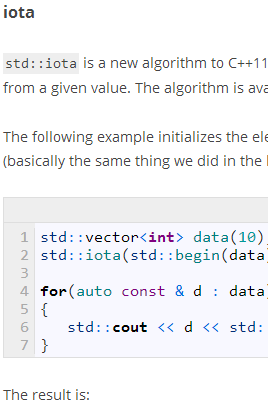Quick Q: Why does this function take a parameter by value? -- StackOverflow
A classic on SO:
Why do we copy then move?
I saw code somewhere in which someone decided to copy an object and subsequently move it to a data member of a class. This left me in confusion in that I thought the whole point of moving was to avoid copying. Here is the example:
struct S { S(std::string str) : data(std::move(str)) {} };Here are my questions:
- Why aren't we taking an rvalue-reference to
str?- Won't a copy be expensive, especially given something like
std::string?- What would be the reason for the author to decide to make a copy then a move?
- When should I do this myself?

 Quick: Would you resort to stringstream? But t
Quick: Would you resort to stringstream? But t
 In the "know your STL algorithms" department, this on the codexpert blog:
In the "know your STL algorithms" department, this on the codexpert blog: